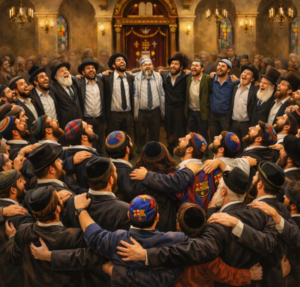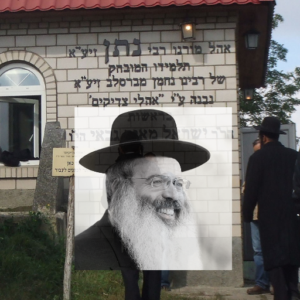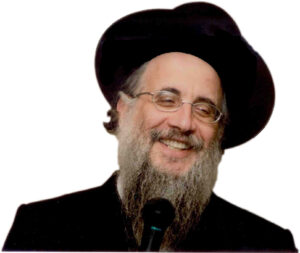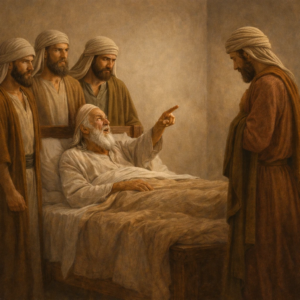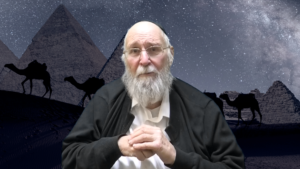- Faith ⬦ Read ⬦ Shabbat ⬦ Weekly Torah Portion
The Greatest Wonder in the World – Parshat Yitro
If you were asked, “What is the greatest wonder of the world?”, you would most likely think of one of the world’s famous natural wonders. Rebbe Natan z”l points us in the right direction: The power of choice, yours, mine, all of us, is the greatest wonder of the world.
This week’s parsha, Parshat Yitro, speaks of the giving of the Torah. The Nation of Israel left Egypt; the Red Sea split for them; and they camped in the Sinai desert and prepared themselves for the great day: the Giving of the Torah. This was the purpose for which G-d had taken the people of Israel out of Egypt: to make an eternal covenant with them. “You will be a kingdom of Kohanim and a holy nation to me” (Exodus 19:6).
The Torah speaks of a “dialogue” between The Holy One Blessed Be He and Moshe Rabbenu in preparing the Nation of Israel to receive the Torah. G-d told Moshe Rabbenu to command the Nation of Israel to sanctify themselves, to separate from their wives until after receiving the Torah: “G-d said to Moshe Rabbenu, ‘Go to the people and sanctify them today and tomorrow. They should wash their garments. They should be prepared (Rashi: separated from their wives) for the third day; for on the third day, G-d will descend upon Mount Sinai in full view of all the people” (Exodus 19:10-11).
Moshe Rabbenu related all this to the Nation of Israel, but with a surprising change: “Moshe Rabbenu descended from the mountain to the nation and sanctified the nation, and they washed their clothing. ‘Be ready for three days,’ he said to the people. Do not approach a woman” (Ibid, 14-15). Moshe Rabbenu told the Children of Israel to separate for three (full) days, and on the fourth day G-d would give them the Torah. Why did Moshe Rabbenu change what G-d had commanded? The sages teach (Gemara, Shabbat 87a) that Moshe Rabbenu added a day of his own volition, and G-d agreed with him.
The fate of the whole world is dependent upon the giving the Torah, as our sages say, “There was evening and there was morning, the Sixth Day” (Genesis 1:31). Why did G-d need to use the seemingly redundant words, “the Sixth”? It is taught that the Almighty made this stipulation with the Forces of Creation and told them, “The Nation of Israel will receive the Torah, and if you don’t agree I will return the world to the state of formlessness and emptiness” (Shabbat 88a). How could it be that Moshe Rabbenu decided on his own to delay the receiving of the Torah by one day? Why did G-d agree to this change? If this were His intention from the start, why did G-d not say this explicitly from the beginning — that he intended that there would be three full days preparation, and that he intended to give the Torah only on the fourth day?
Whatever a person hears directly from G-d he is forced to fulfill, and having free choice is not part of this decision whatsoever. Free will and making choices are possible with matters that one has not heard directly from G-d.
To fully understand this, we need to recognize the power of free choice: “The innovation and the great wonder of the acts of creation” (Likutei Halachot Ribit 5:1). “There is nothing as wondrous, awesome, hidden and concealed in the entire creation of all the worlds like the exalted and astounding hidden innovation that is found in the Creation of the World from Your power, that a person would have the power of free choice — to choose which way he wants to go — that he should have the power of choice to act according to G-d’s Will or not, G-d forbid” (Likutei Tefilot Part 1, 129).
Rebbe Nachman teaches: Whatever a person hears directly from G-d he is forced to fulfill, and having free choice is not part of this decision whatsoever. Free will and making choices are possible with matters that one has not heard directly from G-d. When the Nation of Israel understood that G-d wanted to speak with them and to give them the Torah, they asked Moshe Rabbenu, “If G-d speaks to us directly, will we be forced to do His will and will we lose our free will?” Moshe Rabbenu passed on the people’s question to G-d, and G-d answered him, “Indeed, I intended to speak to you, and the Nation of Israel will hear these things from your mouth. Thus, they will maintain their free will.” Moshe Rabbenu turned to G-d and asked, “So the question has been passed on to me now. This solution allows the Nation of Israel to maintain their free will, but how will I maintain my own free choice? For whenever the Creator speaks directly to a person, there is no room for free will.”
G-d responded to Moshe Rabbenu, “Go to the people and sanctify them today and tomorrow.” G-d commanded Moshe Rabbenu to sanctify the people for two days and did not explicitly command him for three days, thus allowing Moshe Rabbenu to have free choice on whether to receive the Torah after two days or three days. This was Moshe Rabbenu’s free choice: whether to accept the Torah or not. Moshe added one day on his own, and G-d agreed with what he did, and indeed gave the Torah after three days, because this was truly the Will of G-d. (According to Likutei Moharan I, 190)
Rebbe Natan z”l takes this wonderful thought and adds an additional insight:
There is a principle that one should be very careful not to add to the words of the Torah and the commandments, as it says, “Do not add to His words” (Proverbs 30:6). We all know what happened to Adam when he was ordered not to eat from the Tree of Knowledge. The serpent enticed Eve to eat from the tree and she answered him, “‘And from the fruit of the tree that is in the middle of the garden,’ G-d said, ‘Do not eat from it or touch it, or else you will die.’” She added to G-d’s commandment not to eat from the tree. The snake pushed her against the tree and was able to convince her, “Just as you didn’t die from touching it, so too you will not die by eating from it” (Rashi’s commentary on Genesis 3:3,4). Thus, he caused her and Adam to fall into the terrible sin of eating from the Tree. On the other hand, we see that our sages sometimes made safeguards and fences so that we should not fall into sin. Then what is the fine line here, and when should one add safeguards and fences, and when is it not necessary?
The answer is that we really cannot know when to add a safeguard and when not to. Even the most righteous are tested on this, as with the example of Adam. Only those righteous individuals who are able to totally overcome their evil inclination — like Moshe Rabbenu, who merited purifying himself completely — are able to know and weigh the benefits, entering in peace and leaving in peace. (According to Likutei Halachot Shabbat 7:50-52).

The fate of the whole world is dependent on the giving the Torah…
It is worthwhile to quote this special prayer written by Rebbe Natan z”l:
“Master of the Universe, You have mercifully made it known to us, that the main power of Israel’s free choice comes from the fact that You did not speak directly to Israel. Rather, all Your words were spoken to Moshe Rabbenu, and they heard Your words from him. This is the reason that we have the power of free choice on every aspect of Your Torah. For everything that G-d says directly to a person, he will be forced to act without free choice. Moshe Rabbenu did not have free choice regarding the Torah’s commandments, but his free choice was about the issue: ‘Moshe Rabbenu added one day on his own.’”
“And here I am, in my distress, with my bodily desires and weak character which control me and pursue me at all times, and I have complete free will regarding everything that is in the Torah. I need so much encouragement and salvation and great mercy from You. Bless me that I should merit to direct my power of free will to choose what is good and to detest that which is bad. And now what should I do, for in addition to all this, I am uncertain on how to behave in certain areas, and my understanding and counsel is very undecided …”
“And now…instruct me and teach me what to do and how to act, because even Moshe Rabbenu and the other awesome righteous leaders, who had free choice in such matters, were uncertain about what Your will was. And they had the power and great strength, since they were ‘the strong warriors who do His bidding,’ and they had already conquered all their desires completely. They did not have any temptation from their desires or from anything in the world; thus, it was fitting that they would have free choice, in the aspect of “Moshe Rabbenu added one day on his own,” which were the things that they were uncertain about. But a thickheaded and base person like I am, who has done so many sins against You, and who is still pursued by his base desires to such an extent, all the time I am thinking about how I can find some way or some ruse or stratagem to oust them from me, and my free will is very corporeal. What can I do when, in addition to this, they confuse me so much? How many doubts I have, and differing ideas about so many things, about how I should behave. How will I merit finding the straight path to Truth, such that I will merit coming close to You in absolute truth?” (Likutei Tefilot I: 129).
- 0 comment



